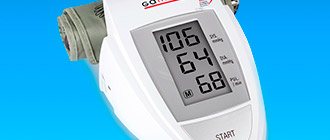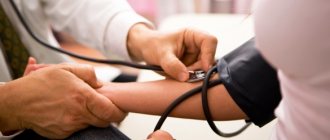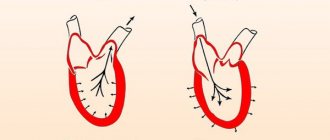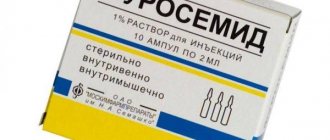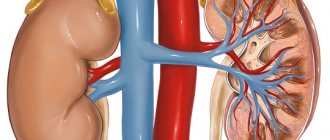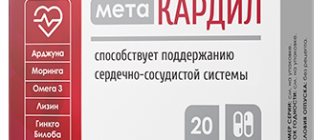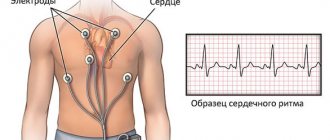What complaints do hypotensive patients have when their blood pressure increases?
Symptoms of high blood pressure:
headache;- nausea;
- dizziness;
- chills;
- heartache;
- palpitations or interruptions in its work;
- urge to vomit;
- flush of heat to the face;
- cold hands;
- drowsiness;
- shortness of breath on exertion;
- feeling tired;
- nosebleeds;
- blurred vision;
- glare, flickering, spots before the eyes;
- swelling;
- facial redness.
When is low blood pressure normal and when is it dangerous?
Cardiologists are known to be more focused on treating hypertension. But this does not mean that hypotension is a pathology with a much smaller danger factor. It just occurs less frequently than hypertension. The reason for the decrease in blood pressure is dilated blood vessels, which is why blood pressure drops very quickly in them, and blood flow in organs and structures changes. When they say that low blood pressure is often more difficult to tolerate than high blood pressure, these are quite fair words.
There are also those who have no complaints about their hypotension. These are, as a rule, people with an asthenic physique, young people. They perceive hypotension without complaints: except that they tolerate heat worse. But you should really worry if your blood pressure was high or normal for many years, and then suddenly, for no apparent reason, it became low. This indicates diseases of the cardiovascular, endocrine, and nervous systems. It is necessary to immediately find out the reason for this contrast.
In this sense, doctors treat athletes in a special way. After finishing their career, they forget about regular medical examinations for a long time. But it is during this period that many athletes trigger a defense mechanism, which is expressed as “hypotension of high training.”
A separate category of people are people with so-called sudden hypotension. These are hypertensive patients who have violated the treatment regimen and dosage of medications. Incorrect intake can lead to an excessive decrease in blood pressure, and this is very dangerous for an organism accustomed to high blood pressure.
A jump in blood pressure against the background of a decrease: what are the symptoms and causes of the condition?
Causes of episodes of high blood pressure in hypotensive patients:
decreased elasticity of blood vessels with age;- reduced amount of estrogen in a woman’s body;
- atherosclerotic process;
- intake of coffee, alcohol, nicotine;
- stress factor;
- pregnancy;
- eating fried, fatty foods with a high amount of spices;
- diabetes;
- sedentary lifestyle;
- pathology of the thyroid gland, kidneys, adrenal glands.
If a person is characterized by low blood pressure, most likely he is adapted to it and feels great with such numbers. Complaints arise when the indicator increases.
These include:
- anxiety;
- fear, panic attack (more often in people suffering from VSD (vegetative-vascular dystonia);
- sleep disturbance;
- headache;
- dyspnea;
- feeling of lack of air;
- nausea;
- vomit;
- noise in ears;
- heartbeat;
- dizziness;
deterioration of thinking;- pulsation in the head;
- fatigue;
- heartache;
- muscle pain;
- flush of heat to the face;
- darkening before the eyes;
- deterioration in performance;
- sweating;
- loss of orientation in space;
- tremor;
- numbness in the limbs;
- deterioration of hearing and vision.
It is important to note that increased blood pressure in hypotensive patients with age is very common. This requires special attention from both the doctor and the patient. The reason for such actions is the fact that the target blood pressure values for treatment and the therapy itself differ from the regimens that are used for other groups of patients.
How can a hypotensive patient prevent vascular accidents?
As already noted, for hypotension there is no special drug treatment - herbal preparations are in greater demand, and such light therapy has its effect. But it will be of little help if a person with hypotension has not figured out what peculiarities of the body he lives with and how he needs to adapt to them.
It is common for many hypotensive people to experience weakness, lethargy, and any reluctance to work at the height of the working day. This occurs due to drowsiness, a general loss of strength, and not due to the laziness of the patient. Only hypotensive people know what it takes to fight such a condition, which manifests itself very often. To regain tone, you need to do one simple exercise.
An effective exercise for hypotension:
- Sit on a chair. Spread your limbs. Cross your arms behind your head;
- Take a deep breath, slowly stretch to your knees;
- Straighten up, feel the alignment of the spinal column, exhale sharply;
- Do three repetitions.
That's all, you ask? This is really enough to feel a surge of strength. But to normalize the condition as a whole, you will have to take into account some more recommendations. One of them is sleep.
What indicator is considered elevated in a person with hypotension?
A hypotensive person is a person whose normal blood pressure is 90-100/60 mmHg. or less.
When blood pressure increases to 121-130/90 mmHg or more, this causes complaints in such patients. Numbers that are greater than these indicators can be considered elevated in a person prone to hypotension.
It is not so difficult to determine the increase in pressure in such a cohort of patients. Often even easier than in hypertensive patients. This is due to the fact that the tone of its blood vessels is reduced, while in people suffering from high blood pressure it is increased.
Symptoms that are worth paying special attention to, since they most accurately indicate a surge in blood pressure in hypotensive patients:
- headache (bursting);
- nausea;
- deterioration of thinking;
- dizziness;
- pulsation in the head;
- deterioration of vision and hearing;
- noise in ears;
- darkening before the eyes;
- vomit.
How to prevent fainting with hypotension
Hypotonic people know that fainting is not uncommon for them. Especially if certain circumstances contribute to this. For example, if you find yourself in a cramped subway car, you are highly likely to faint. Prerequisites for loss of consciousness will be headache, increased heart rate, and the feeling that everything is floating before your eyes. In this case, you need to quickly sit down - do not be shy to ask for help. Don’t rush to get up, you need to make sure you come to your senses.
After this, you should go out into the open air, take off your scarf, unbutton your jacket, etc. You cannot do any quick, sudden actions. Subsequently, try to avoid situations that could lead to fainting.
What help should be provided at home?
Consider an increase in blood pressure in a hypotensive patient to be 121-130/90 mmHg as normal. wrong! Such indicators in a person suffering from low blood pressure can sometimes even be considered as a hypertensive crisis, which requires an immediate call for an ambulance or independent consultation with a doctor.
First you need to find out:
Has your blood pressure been steadily rising lately, or is this a recent, short-term incident?- How often do pressure surges occur?
- What can increase or decrease the indicator?
- What is the normal blood pressure for the patient?
- Has a similar condition occurred in your relatives?
It is very important to carry out the full range of examinations. Especially if it is a young man. In order to exclude a number of serious diseases that can increase blood pressure.
If the episode of blood pressure rise was a single episode, or it is slightly changed without causing discomfort to the patient, you should start with non-drug treatment.
Non-drug methods
Such options include the following measures aimed at improving the patient’s lifestyle:
- quitting smoking and alcohol;
- normalization of nutrition: reduce salt intake, increase the amount of vegetables and fruits, fish in the diet;
- increasing physical activity: swimming, walking, physical therapy, yoga, breathing exercises;
- walks in the open air;
- reducing stress.
What medications can I take?
If non-drug methods have not brought any benefit and blood pressure continues to rise, it is worth resorting to drug treatment. It is important to remember that drugs to reduce hypotension can only be taken as prescribed by a doctor. This also applies to dose adjustment.
Often used for treatment:
- beta-blockers: Metoprolol, Bisoprolol, Nebivalol;
- antiplatelet agents: Aspirin, Curantil;
- lipid-lowering drugs (statins): Atorvastatin, Simvastatin;
- sedatives;
- diuretics and hypoglycemic drugs if necessary;
In what cases can you not do without an ambulance?
Cases in which you need to call an ambulance:
the patient himself or with the help of relatives cannot lower high blood pressure;- the symptoms of a hypertensive crisis do not disappear, but only intensify;
- complications arose;
But I would like to emphasize that even if you experience high blood pressure for the first time, it is recommended to seek medical help!
If you have doubts, check if you are hypotensive
There are situations when you suddenly discover that your blood pressure has increased. Some symptoms alerted you: you took out a tonometer, and it showed, for example, 135/90. At the same time, you are sure that you have been hypotensive all your life. What to do if a hypotensive person has increased blood pressure?
First, you need to clarify your status at a medical institution. If you really have hypotension, then vascular tone in this state is also impaired. In most primary hypotensive patients (that is, those who have this disease for no apparent reason), this disease is hereditary. Although hypotension can be caused by the same stressful situations, overload, as well as physical inactivity. Sometimes the reason for this deviation is a lack of vitamins B, E and C.
If your blood pressure is reduced, but it does not cause any problems - neither externally nor according to the results of the examination, you can live with the pathology. But it is worth noting that such a cloudless picture rarely emerges.
Therefore, all potential hypotensive patients need to undergo:
- ECG – if any dysfunctions are detected, a more in-depth cardiac examination will be required;
- Blood and urine tests;
- Consultation with a cardiologist, neurologist.
If necessary, the doctor will prescribe echocardiography, as well as cardiointervalography. These methods make it possible to identify the characteristics of autonomic disorders.
conclusions
In conclusion, it is worth saying that many hypotensive people with age acquire a disease such as arterial hypertension. They are more likely to have strokes, heart attacks and heart ruptures. Therefore, treatment is mandatory. Every morning should begin with taking medication, if necessary. To avoid sudden increases in blood pressure that occur at this time of day. It is also important not to self-medicate and not to look for information on this matter on forums where advice is given by people without medical education, because doses and medications for the treatment of hypertension are selected individually, especially for hypotensive patients.
Take care of your health and be happy!
Why hypotensive people need more sleep
Sleep for a person with low blood pressure is better than any pills. Even if it seems to you that you get enough sleep in six hours, this is self-hypnosis, and it works, as they say, for the time being.
Cardiologist Olga Kalinina, who consults many media outlets and medical journals, assures that hypotensive people need to sleep a little more than everyone else. And on those days when your condition is not the best, try to sleep at least 9-11 hours, this is a truly healing remedy. Before going to bed, if you listen to your doctor’s advice, you need to take a walk for at least half an hour.
Do not sit too long at the monitor if you have low blood pressure. It is especially dangerous to do this before bedtime. If it’s easier to fall asleep listening to a TV series, you need to change your habit. There is a simple method to help you fall asleep well.
Advice for hypotensive patients to help them fall asleep! Fill the bath with cool water, just enough to cover your ankles. Just drown in this water for just three minutes. After this, rub your limbs thoroughly with a terry towel until it becomes warm - put on woolen socks and go to bed in them. You'll see, sleep will come faster.
And in order to quickly come to your senses in the morning (hypotonic people need a lot of time to cheer up and become more active in the morning), do a simple breathing exercise. Lying on your back, inhale very deeply, while inflating your stomach. Then slowly exhale, your stomach will gradually lower and press inward. This breathing optimizes blood flow and increases the overall tone of the nervous system.
Don't give in to pressure
No matter how significant this phrase may sound, in our context it has the following meaning: control your blood pressure, do not let it go beyond the normal range in various ways. This is, first of all, a way of life: work schedule, sleep and rest, nutrition, giving up bad habits, etc. This is the ability to properly respond to stress and resist emotional burnout.
If treatment is indicated for you, do not delay. Physiotherapy courses can be taken several times a year, preferring those options that have demonstrated greater effectiveness. For any significant changes in pressure, you should consult a doctor to find out the causes of the failure.

